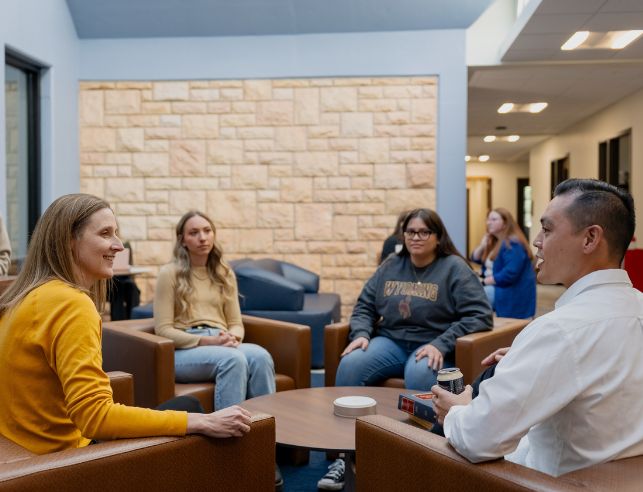preparing for law school
Most law school deans and faculty, the Law School Admissions Council, the American Bar Association, and most universities have no officially prescribed pre-law major or concentration preference. Law Schools look for and accept students from all majors and a variety of backgrounds. Any student who anticipates applying to law school is considered a pre-law student; however, guidelines for approaching undergraduate study help prepare students for the challenges of the LSAT exam, a legal education, and the profession. Learn about the Pre-law concentration for Criminal Justice majors.
Freshman and Sophomore Years
- Select a major that you enjoy; there is no wrong major for students who want to pursue law school.
- Become involved in and remain active with student organizations that relate your areas of interest.
- Register for your free account with LSAC and learn more about the law school admissions process and the LSAT.
- Choose courses that will enhance abilities in reading, writing, speaking, negotiating, and solving complex problems. Courses in American history and literature, political science, American studies, economics, ethical theory, and political philosophy also will be valuable.
- Look for internships and community volunteer service opportunities.
- If interested, visit with UW's Study Abroad office, regarding study abroad, to learn about diverse cultures and international institutions and issues.
- Foster your connections with professors and employers, as well as other supportive persons who will be able to submit letters of recommendation.
- Attend lectures offered by lawyers, judges, and government officials when they visit campus.
Junior Year
- Study for the LSAT.
- During the fall semester, take a mock LSAT test (the first of many that you should take this academic year).
- Submit the Free Application for Federal Student Aid (FAFSA) form, which can be done as early as October 1st.
- Write the first draft of your personal statement; then let friends, professors, family, local attorneys, and trusted persons review it for recommended edits.
- Submit the first draft of your resume to the UW Writing Center and the Advising, Career and Exploratory Studies Center for review.
- Register to take the official LSAT exam at some point during your junior year or the summer following. It is possible to take the LSAT more than once.
- Register with the Credential Assembly Service (CAS).
- Secure at least three letters of recommendation to be submitted to the CAS.
- Begin to visit and research law schools; it is often recommended that students apply to a minimum of two reach schools, two match schools, and three safeties. Not sure where you're likely to be accepted? Check out the LSAC undergraduate GPA and LSAT Score Search tool for a realistic assessment of your chances.
Senior Year
- Take the LSAT exam in the fall if you did not take it during your junior year.
- Upload all required documents to CAS.
- Complete and submit your law school applications, using the school's earliest deadline.
- Research financial aid and scholarship opportunities, including the AccessLex Scholarship Databank.
- Complete the FAFSA.
- Send thank you letters to those who wrote letter of recommendation and any other who helped you with the application process.


